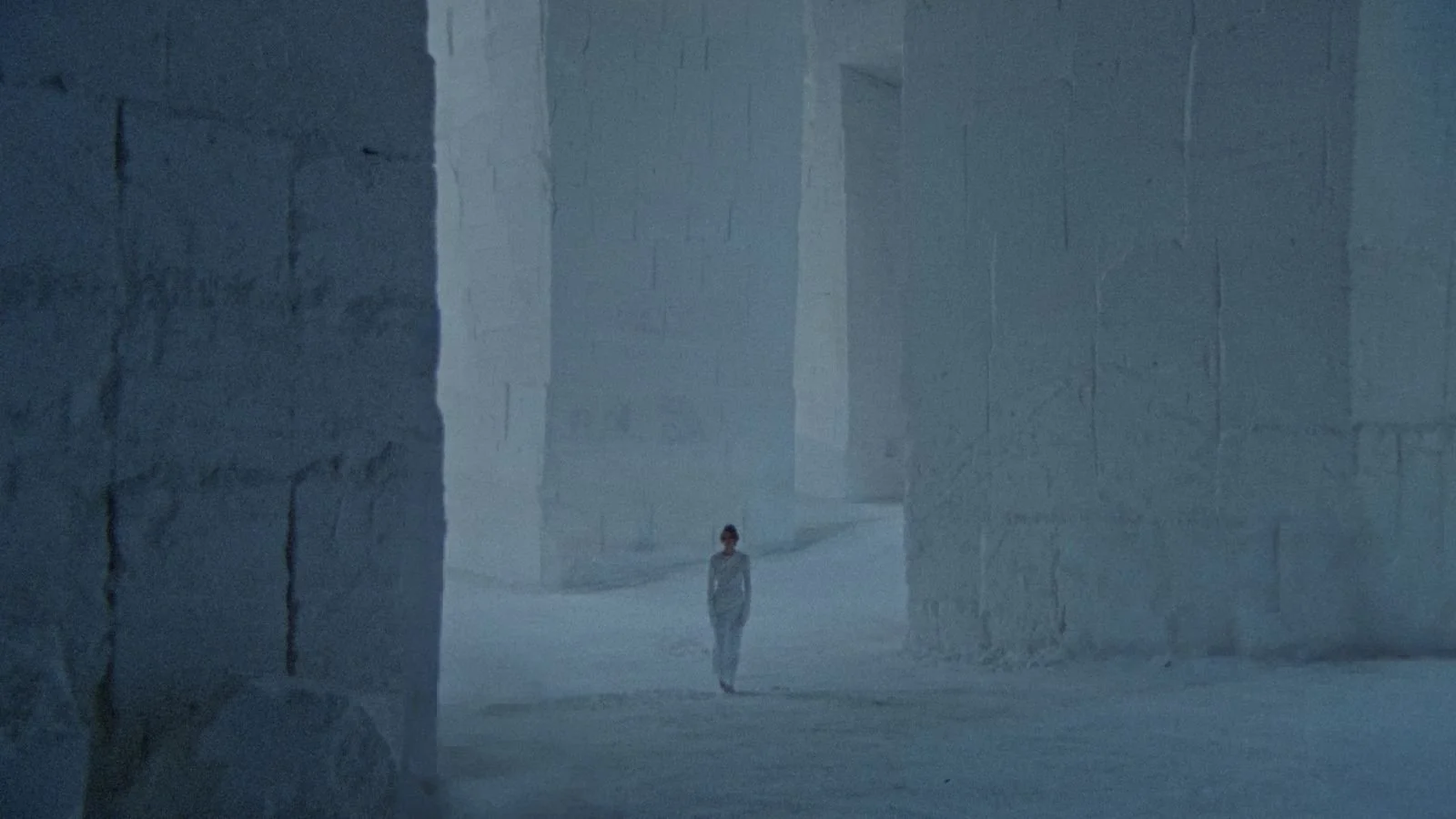Reimagining Love and Freedom: An Interview with Koki Nakano and Wayne Snow
In the ever-evolving landscape of music, collaboration often leads to the most striking and memorable creations. Enter Vertical Pool, a sublime melding of talent between Japanese composer and pianist Koki Nakano and Nigerian artist Wayne Snow. Both bring their distinct styles and backgrounds into this unique track, creating a soundscape that transcends genre boundaries and resonates with powerful themes of freedom, love, and rebellion. Nakano, previously featured on Ninu Nina as a solo artist, returns with an even deeper story to tell—this time alongside the expressive and soulful voice of Wayne Snow. The duo's collaboration is not just a song but an experience that invites listeners to shift their perspectives and embrace the beauty of unconventional love.
Vertical Pool, the third single from Koki Nakano’s forthcoming album Ululō, is a testament to the boundless creativity that arises when two artists with distinct sounds and stories come together. Nakano’s emotive piano playing, known for its nuanced blend of classical and contemporary influences, is a perfect match for Wayne Snow’s rich, soulful vocals. Snow, celebrated for his 2021 album Figurine, adds an unparalleled depth to this new single with his expansive vocal range and ability to infuse each note with feeling.
This track is more than just music—it’s a reflection of shifting perspectives and the audacious pursuit of freedom. Nakano explains that while composing, he envisioned a woman swimming skyward in a glass-sided vertical pool—a surreal yet vivid metaphor that encapsulates the liberating and defiant nature of the song. This imagery guided the composition’s emotional arc, imbuing the music with an openness that beckons listeners to challenge their own limitations.
The process of merging piano, synthesizers, and vocals in Vertical Pool was a delicate balance. As Nakano shares, the initial composition already contained most of the sound framework. When Snow’s vocal lines were added, they brought unexpected textures that led Nakano to refine the layers further. “It was a very enjoyable work process,” Nakano notes, highlighting the organic evolution of the track as the pair fine-tuned it in the studio, emphasizing both the structured and fluid aspects of their work.
Snow explains that the goal was to create a sound that feels simultaneously expansive and intimate. “The piano gives it a grounded, almost human touch, while the synthesizers create a dreamy, otherworldly vibe,” he says. This blend perfectly embodies the duality of love—a force that is deeply personal yet universally understood. The track is a sonic representation of freedom, where Nakano’s instrumental prowess and Snow’s voice come together to evoke the feeling of breaking free from constraints. As Nakano eloquently puts it, “The track is a love song for pursuers of freedom and is about the sense of openness that comes from viewing the world through different perspectives.”
Q: Koki, you mentioned keeping a picture of a woman swimming in a vertical pool while composing the track. How did that image influence the musical and emotional direction of the piece?
Koki: "I wanted to express a sense of liberty and openness that emerges when we change our perspective on things. I really liked this image of a woman elegantly breaststroking towards the sky in a glass vertical pool. It’s surreal, but I could still feel its sense of freedom, which is quite physically imaginable. This image inspired me to create energies that naturally go above our usual limits and soundscapes that might resonate at that altitude."
Q: The track merges piano with synthesizers and vocals in a very distinct way. How did you both approach blending these elements to create the 'soundscape' for Vertical Pool?
Koki: "When I proposed the piece to Wayne, most of the sound was already there. However, after he sent me his vocal lines, I reconsidered the balance between layers and started adding some to emphasize the flow defined by Wayne's vocals. The unexpected elements he brought made the process truly enjoyable."
Wayne: "We wanted the sound to feel expansive yet intimate at the same time, much like how love can feel both personal and universal. The piano gives it a grounded, almost human touch, while the synthesizers create a dreamy, otherworldly vibe. It was important for the vocals to flow between those two worlds, connecting the organic with the surreal."
Q: Wayne, how did you connect with the idea of love as "rebellion" and translate that into your vocal performance and lyrics on the track?
Wayne: For me, love has always been this rebellious force—something that makes you break down walls, challenge norms, and just surrender to the intensity of it. I wanted the vocals to carry that fire, to sound like someone unafraid to fight for what they feel, while also letting the vulnerability of love show through in quieter moments.
Q: Where was "Vertical Pool" recorded, and what was the recording process like? Did you both work in the same space, or was the collaboration more remote?
Koki: All instruments were recorded in my studio. We spent a day together in the studio in Berlin working on the details of the vocals, but since the demo he sent me was very nice, we partially kept Wayne's home recording as well.
Q: The song seems to evoke a feeling of freedom and openness, both lyrically and musically. What techniques did you use in the composition and production to capture that sense of emotional and spatial openness?
Koki: It starts with a blend of organic textures, such as piano, splashing water, and artificial, granulated textures. I wanted to create a surreal yet organic sense of gravity. I expected that the long, sustained, vibrant notes of the synthesizer, which emerge with the emotional progression, would create filled energies that spring to support Wayne's vocals as they fly higher.
Wayne: We tried to leave room in the song—both musically and lyrically—for listeners to get lost in it. The way the piano and synths interact, the pauses in the vocal delivery, and even the reverb we used all aimed to create this feeling of space. It’s like being in that vertical pool—there's depth and height, but also a sense of floating.
Q: How did you both collaborate creatively? Were there any moments of spontaneous inspiration or improvisation during the process that shaped the final version of the song?
Koki: I made the music imagining Wayne's vocals, even when he didn't know anything at all about me! It was very important for me to have trial and error, carefully searching for styles that would be a crossing point for both of us. It took time to send him the first demo.
Q: How does "Vertical Pool" fit into your broader artistic visions? Do you see this single as a continuation of previous work, or is it exploring something entirely new for both of you?
Koki: I believed that Wayne's presence and his vocals would bring brightness and fresh air to my album. His modern voice provided a unique perspective and wider range of interpretation for my album's theme, ‘Ulolu’ (which means Howling/Crying in Latin), which explores the struggle of being in this physical world defined by many limitations.
Wayne: For me, it doesn’t make any difference in my general approach. I create music as it comes to me. I try to follow the flow and be surprised by the final result.
Adding to the rich artistry of Ululō, Koki Nakano's recent project Prodigal Weep—brought to life through a visually captivating music video by director duo Karl & Leo Cannone—deepens the narrative that Nakano weaves throughout his work. The gorgeous video reinterprets the Greek myth of Pygmalion and Galatea, pairing Nakano's emotive playing with a powerful visual story that resonates with themes of creation, transformation, and existential reflection. Nakano recalls the profound experience of performing the piece in an empty stone quarry, symbolizing the interplay between human exertion and the structures that define us.
“I cried a lot as a child, as if each tear unleashed a storm within my small yet vast, boundless personal universe. When the storm passed, all that remained was my body. Looking back, I sometimes think I needed to cry that much just to understand my own limitations in the world,” Nakano shared. Performing in such a monumental space brought a sense of renewal, where the echoes of sound seemed to infuse life back into the quarry, redefining it through art. This visual and auditory collaboration, under the lens of Karl & Leo Cannone, illustrates the powerful intersection of music and storytelling that Nakano continues to champion.
The entirety of Ululō is a journey—each track, whether in collaboration or solo, carries a story that evokes emotion and thought. The video for Prodigal Weep encapsulates this perfectly, underscoring the themes of rebirth and the transformative power of artistic expression.





